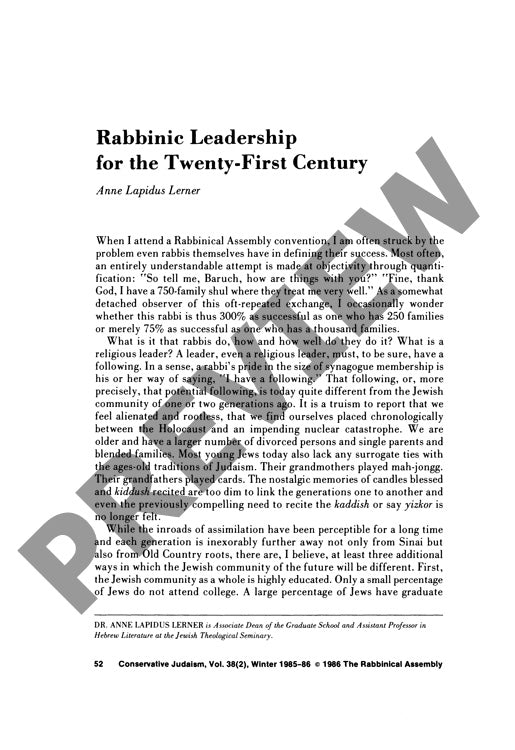Rabbinic Leadership for the Twenty First
Couldn't load pickup availability
Today's American Jewish congregants are challenging traditional rabbinic authority through unprecedented levels of Jewish education, women's religious leadership, and diverse perspectives from growing numbers of converts. As synagogue dynamics shift from hierarchical to participatory models, rabbis must fundamentally reimagine their leadership approach. Through observational analysis of rabbinical conventions, conversion program outcomes, and seminary training evaluations, this research identifies the essential qualities of effective twenty-first century rabbinic leadership. Success metrics based purely on quantitative measures prove inadequate; instead, rabbis must serve as committed educators with broad Jewish knowledge while developing professional communication skills that position them as intellectual peers to their congregants. Creating transformative religious leadership requires structural reforms in rabbinical education, including enhanced field experience, interdisciplinary professional training, and collaborative team-based congregational models. These adaptations will enable rabbis to effectively engage and inspire an increasingly educated, diverse, and participation-oriented Jewish community.

More Information
-
Physical Description
-
Publication Information
Published 1985-1986
ISBN
-
Publication Credits
Anne Lerner

